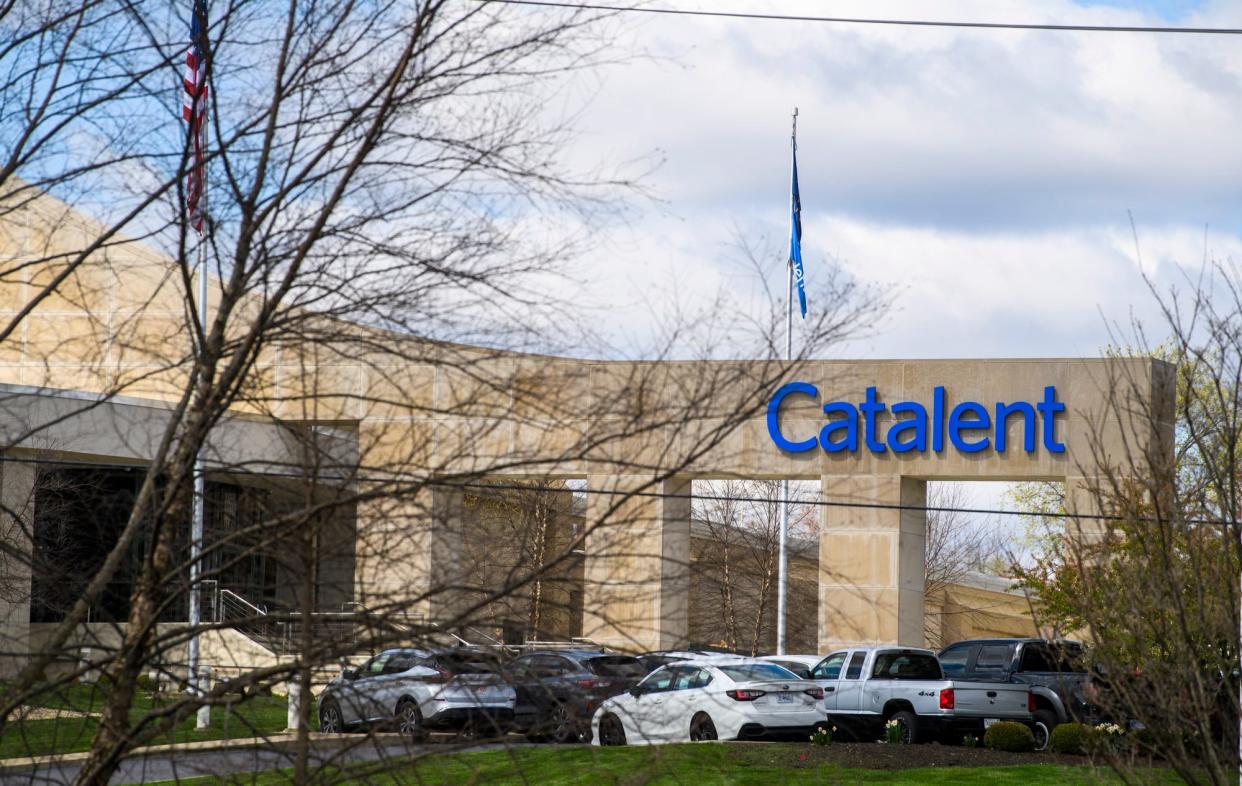Novo Nordisk announces plans to buy Catalent, one of Bloomington's biggest employers

The parent company of Danish drug maker Novo Nordisk plans to buy Catalent, including the Bloomington operations, for $16.5 billion.
Novo Holdings and Catalent announced the plan Monday and said they hope to conclude the deal by the end of the year.
The plan has generated some unease among Catalent’s Bloomington employees, who have gone through difficult months of job reductions after a frenzied production buildup during the pandemic.
“What happens now? Will there be more layoffs?” said someone who identified themselves on social media as a Catalent employee.
Novo has need to ramp up production of patented drug Wegovy
Catalent had about 4,000 employees in the Bloomington area in 2022, but has reduced staff since then as it struggled to adjust to a post-pandemic economy. A current headcount was not available on Monday. The company, and the city’s economic development department did not immediately reply to emails Monday morning. Jen Pearl, president of the Bloomington Economic Development Corp., said she was not ready to comment yet.
However, an Indiana University expert said he believes the planned acquisition bodes well for the Bloomington operations.

“I certainly think it’s a good thing,” said George Telthorst, director of the Center for the Business of Life Sciences at the IU Kelley School of Business.
He said he believes Novo is making the acquisition primarily because it needs to add capacity for its drug Wegovy. The drug was initially made to treat diabetes but has since gained popularity as a weight loss drug, for which it is also approved by the Food and Drug Administration.
Telthorst said adding capacity typically takes a long time and costs a lot of money, so it makes sense for Novo to buy production plants to add capacity more quickly and at a lower cost.
Catalent shares spike, future company would be private
Kasim Kutay, CEO of Novo Holdings, said in a news release, “We are excited to partner with Catalent as it enters a new phase of growth and accelerates its mission to develop, manufacture and supply products that help people live better and healthier lives. … We are excited to support the Company’s stakeholders in the years ahead, especially employees and customers as they work to develop new products to benefit patients.”
Shareholders of both companies certainly appear to like the proposed deal: Catalent’s shares spiked nearly 10% Monday morning and hovered near $60. Novo Nordisk shares were up about 3% in morning trading. Broader market indices were down. The S&P 500 was down nearly 0.6%.
After the acquisition, Catalent would become a private company, meaning its stock would no longer be traded on the New York Stock Exchange.
Telthorst also said Novo products have much longer patent protection than the COVID-19 vaccines, for example, which means when Novo increases production in Bloomington, the local employees likely will not see the frenzy they experienced during the pandemic-related ramp up.
Catalent increased production of COVID-19 vaccines quickly and expanded its Bloomington operations with more than $100 million in investments and an additional 1,300 employees in 2020. In 2021, the company added 1,000 more employees in Bloomington and raised its starting wage to $19 per hour. It cut jobs as demand for the COVID-19 vaccines waned.
Slowdown: Does Catalent still plan to create 1,000 new jobs in Bloomington?
Telthorst said he expected no immediate impact on wages.
He said Novo Holdings has an unusual ownership structure — it is owned by a foundation — and also has altruistic goals, unlike a traditional corporation that aims to primarily create shareholder value. Novo Holdings is owned by the Denmark-based Novo Nordisk Foundation, which aims to “improve people’s health and the sustainability of society and the planet.”
Telthorst said it will be interesting to see how Catalent’s Bloomington operations will be affected by the Novo Holdings culture, the third — after Cook and Catalent — to which local employees will have to adjust.
“That will be something to watch,” Telthorst said.
Boris Ladwig can be reached at bladwig@heraldt.com.
This article originally appeared on The Herald-Times: What Novo Nordisk's Catalent purchase means for Bloomington, Indiana

